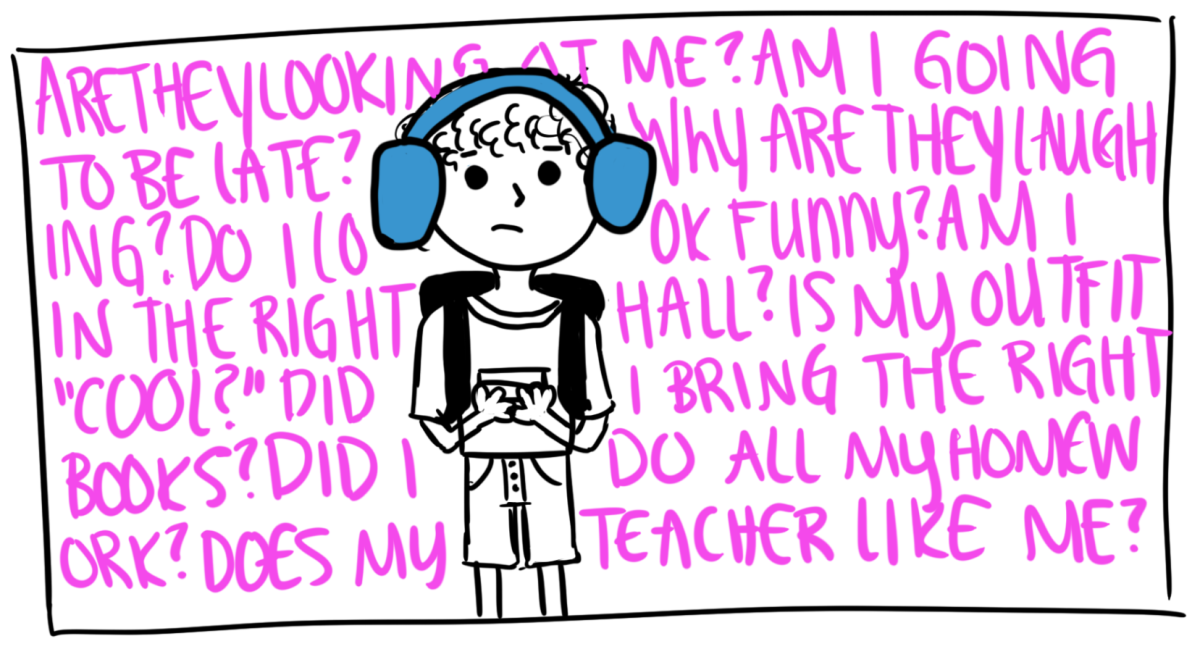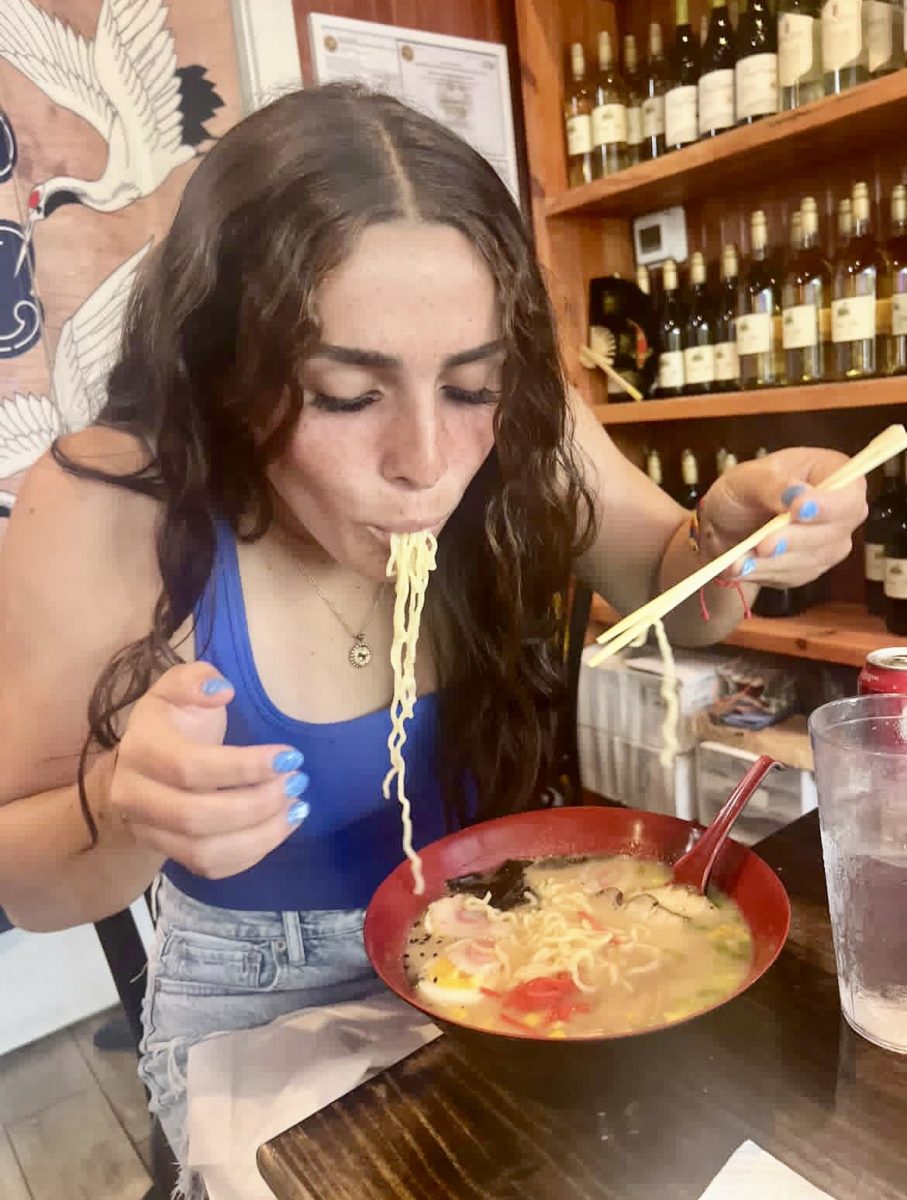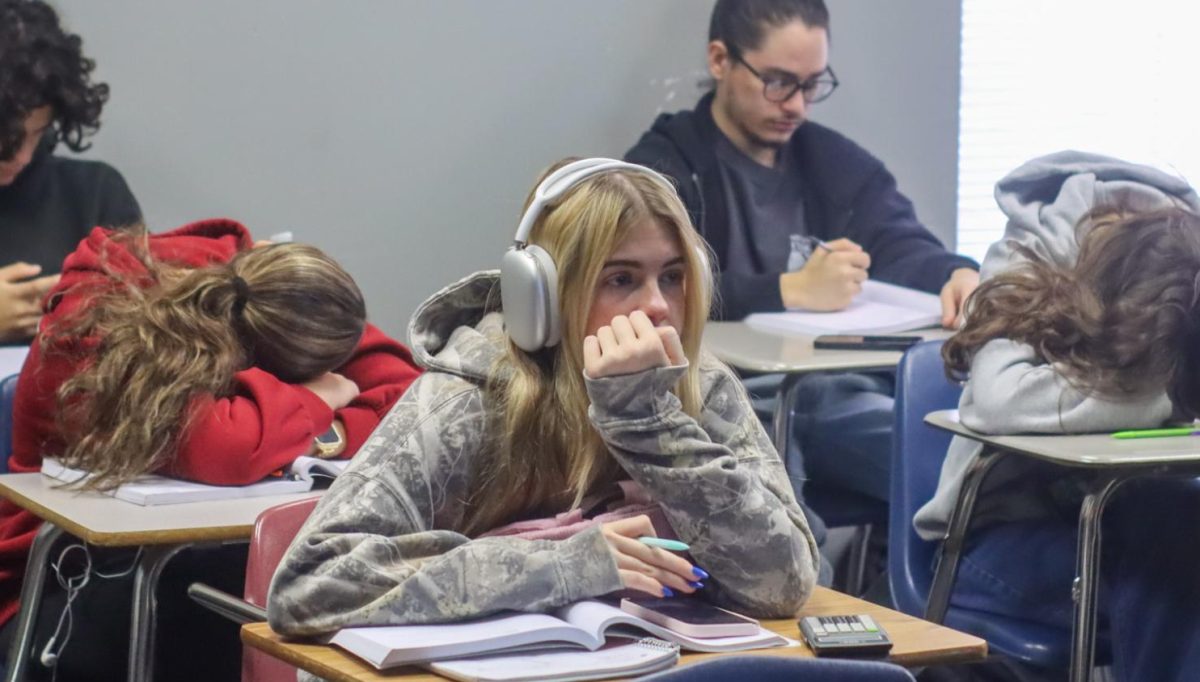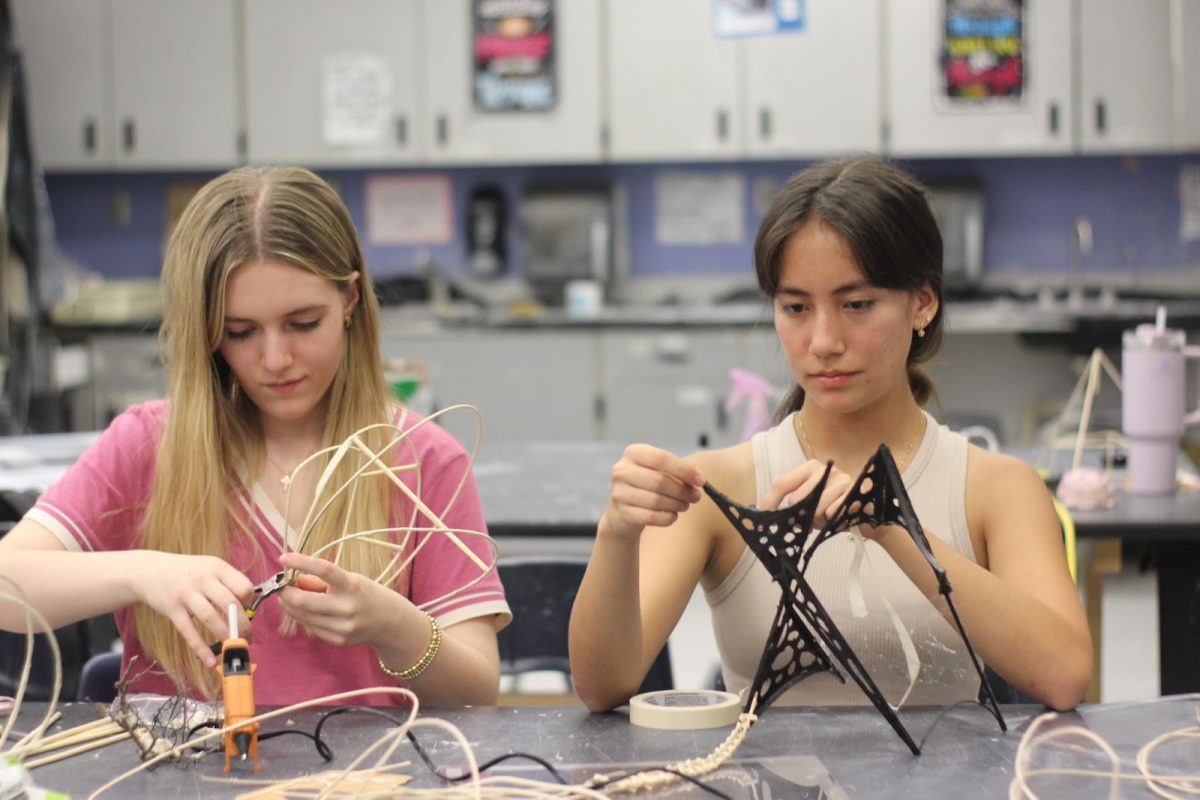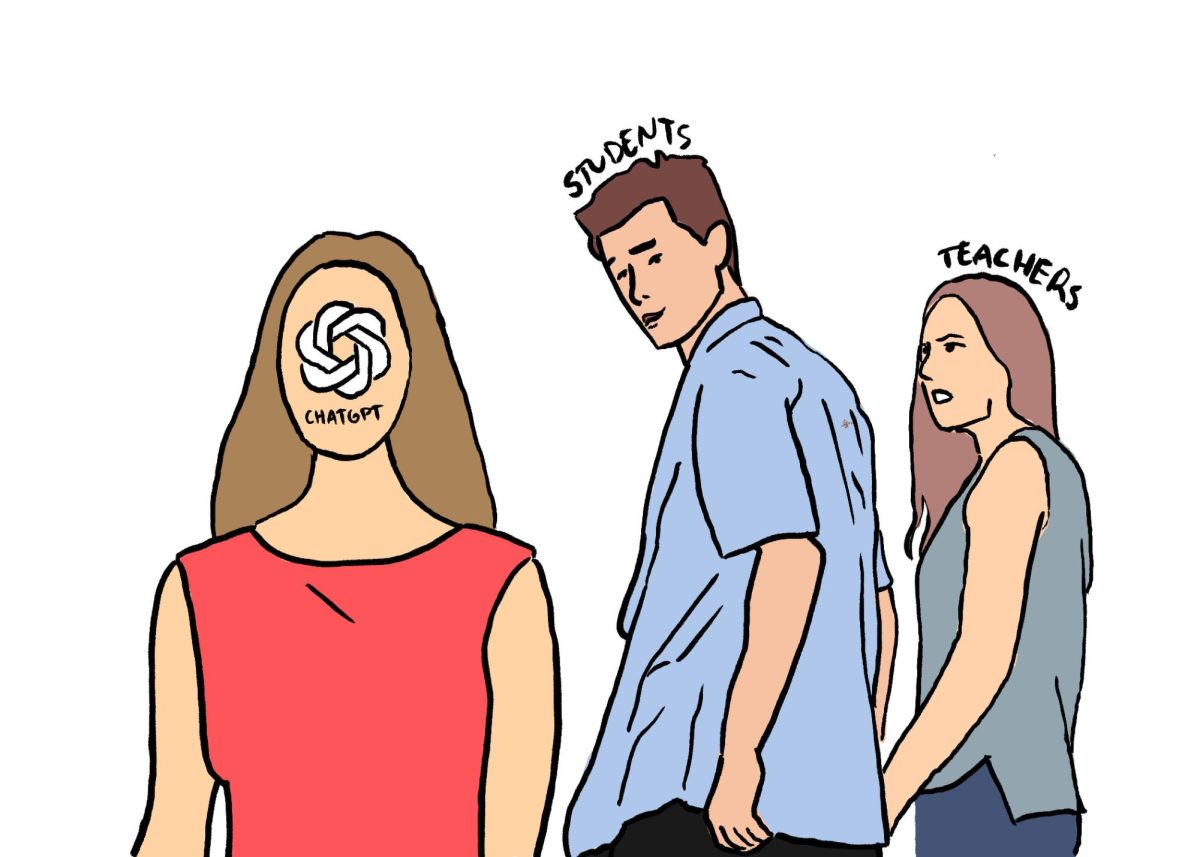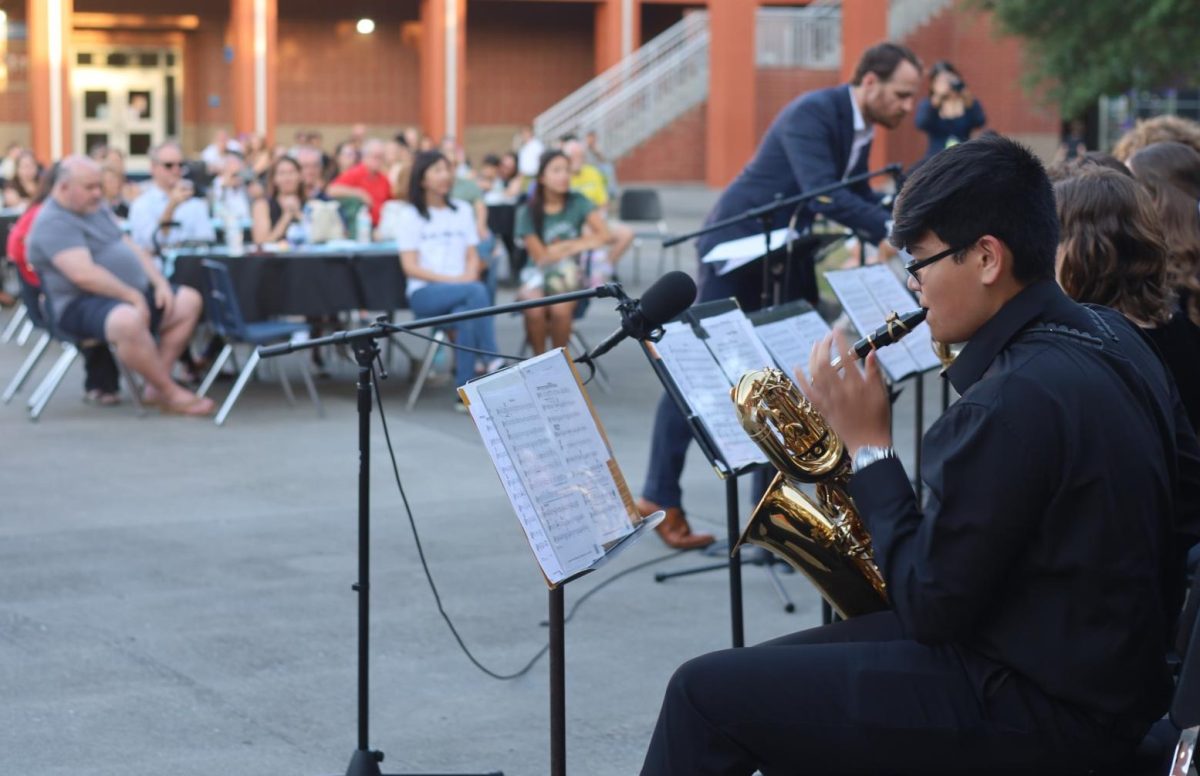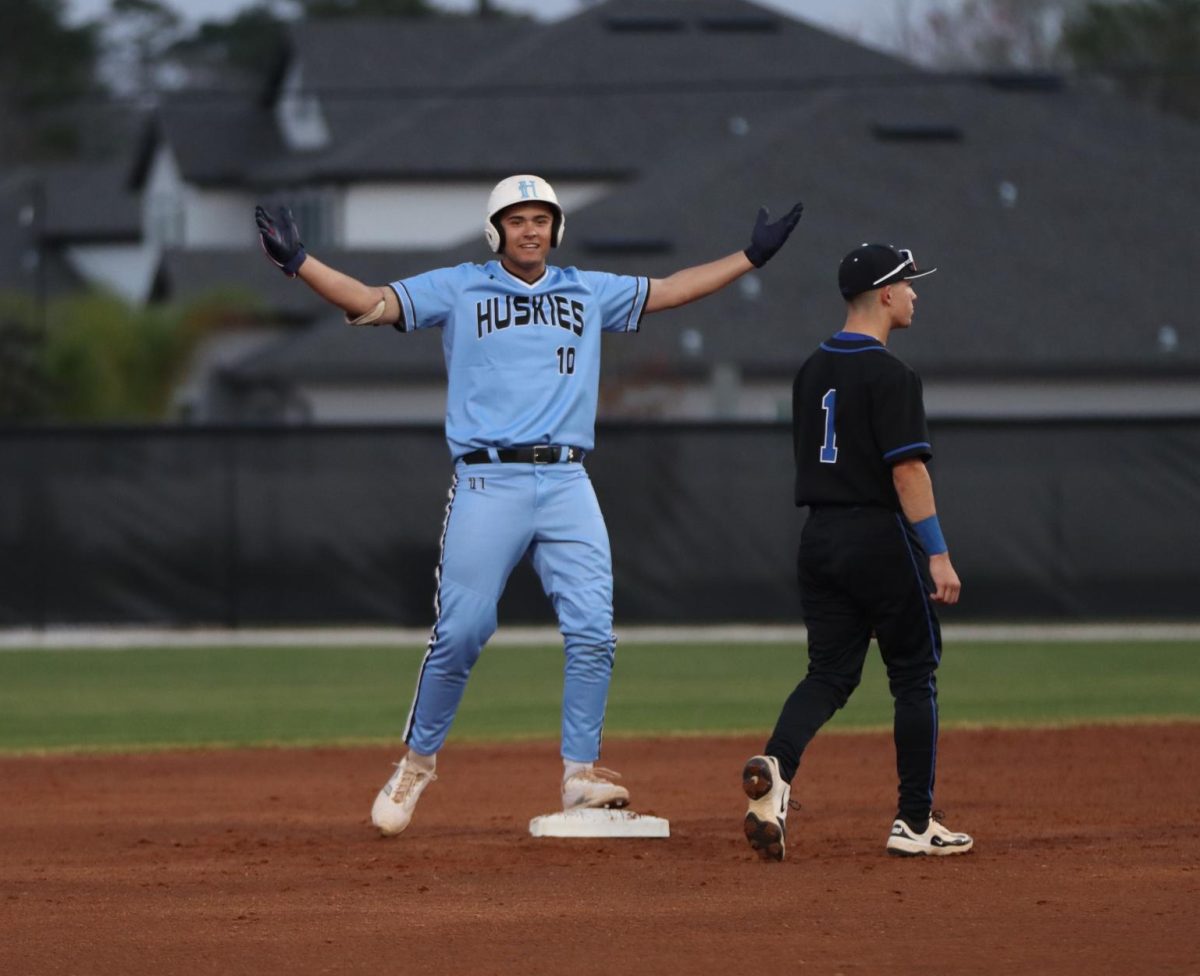High school can feel like a social battleground, especially for the 40% of students who identify as introverts. For those who thrive in quieter environments, the hustle and bustle of passing periods, crowded cafeterias, and loud pep rallies can be overwhelming. Yet, many introverts have discovered creative ways to navigate this chaotic world.
When it comes to introverts like senior Karissa Emmert, the best kind of school day involves as little group work as possible. She tries to make the most of solo projects and independent assignments. In fact, Emmert admits that a canceled group project feels like “winning the lottery,” even if she has to play along and act like she’s disappointed for the sake of her classmates.

“I love when a group project gets canceled, but I try not to show it,” Emmert said. “I pretend with the people around me like, ‘Oh no…wish we could’ve worked together…’ but on the inside, I’m celebrating.”
For introverts, their natural tendencies also make them adept at subjects requiring deep focus and individual effort. Emmert finds that being introverted has built up her listening and observation skills.

“In subjects like English or science, being able to focus on my own is a big advantage,” Emmert said. “It’s amazing how much you can learn just by paying attention to the little things others might miss.”
Her advice to fellow introverts navigating high school? Embrace the quiet moments.
“Find those quiet corners, cherish your independent work, and remember, headphones aren’t just for music—they’re your secret weapon against unwanted small talk,” Emmert said.
Many introverts in high school share a common ability to find calm amidst chaos, creating their own personal space even in the busiest environments. Building meaningful, sincere relationships is another key strategy for navigating the social landscape, allowing introverts to focus on quality connections rather than quantity.

“Focus on building meaningful connections with a few close friends who understand and appreciate you rather than collect as many people as you can that don’t care,” Emmert said. “Quality over quantity should always be prioritized.”
Similarly, senior Danielle Hoffman credits her introverted nature with her ability to excel academically. While many students are distracted by social interactions, introverts like Hoffman use their observational skills to their advantage.

“I think being an introvert you tend to pick up on details better, which in my experience has led me to better grades than the more extroverted people at times,” Hoffman said.
She also offers her own tips for navigating rowdy environments like pep rallies. Introverts can still participate in school activities without feeling overwhelmed through selective hearing.
“My biggest advice for louder events is to keep breathing and find one thing to focus on,” Hoffman said. “After that, tune everything else out.”
However, while Hoffman values her introverted strengths, she also advocates pushing beyond the comfort zone. For her, stepping into uncomfortable situations, like presentations or meeting new people, has helped her grow both socially and academically. 
“If I could give one piece of advice it would be to push yourself out of your comfort zone,” Hoffman said. “I have grown so much because I’ve been pushed out of my own comfort zone. I find it’s helped my social skills and has made me more confident when it comes to presenting and meeting new people.”
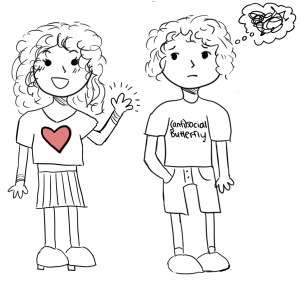
Introverts may find themselves in unexpected situations where their instincts backfire—where trying to remain unnoticed instead brings them to the center of attention. Senior Haley Hines tried hard to go unnoticed, but found herself in the spotlight at last year’s ROTC ball.
“I remember when I went to the military ball and I was just trying to blend into the crowd and go unnoticed, but I got crowned queen and I got dragged to the middle of the dance floor,” Hines said.
Her introverted strategy of blending in was quickly turned upside down as she found herself in the spotlight. However, despite the initial discomfort, she soon realized that being the center of attention wasn’t all bad.
“At first, I was like ‘Oh my gosh’ (nervous), but then oh my gosh! (yay) because I realized everyone just wanted to be around me,” Hines said. “I realized that I shouldn’t be so afraid when people approach me. Sometimes it works out a lot better than the scenario you create in your head.” 
On a more day-to-day level, many introverted students develop coping mechanisms for surviving loud, busy school environments. For Hines, her introverted nature has helped her focus on forming close, supportive friendships rather than wasting energy on superficial social interactions.

“I think being an introvert has really helped me ignore toxic people and keep them out of my life,” Hines said. “It’s also helped keep me grounded and not get wrapped up in unimportant things.”
Junior Maria Stea takes a more tactical approach when navigating chaotic school events like pep rallies or assemblies. For her, noise-canceling headphones are an essential tool for surviving these overwhelming environments.
“Headphones are my lifesaver. I pretend to be focused in class, but really, it’s my curated playlist that keeps me in my own world,” Stea said.
She suggests investing in good headphones and planning out quiet spots in advance, whether it’s at lunch or during assemblies.
“[Noise canceling headphones] create a bubble and gives me a chance to mentally escape and recharge even in the loudest settings,” Stea said.
During silent study periods, some introverts find themselves with extra time after completing their work, with no way to spend it. Stea shared how she uses this downtime to learn new skills and hone her hobbies.
“Recently, I’ve been watching videos on origami and I’ve already learned how to make small frogs, jumping snakes and ninja stars,” Stea said.
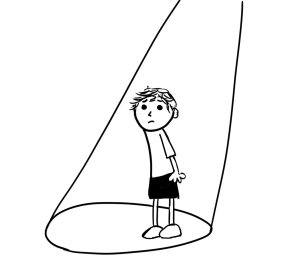
For her, it’s a fun and productive way to stay engaged without needing to interact with others. And when she’s not folding paper, she often reads or watches other videos to pass the time.
Each of these students has developed their own methods for thriving in high school as an introvert, proving that while the environment may be challenging, it’s certainly not impossible. Whether through finding solace in solo work, using headphones to block out the noise, or carefully navigating social interactions, introverts have found their own unique ways to flourish in the often hectic world of high school—one quiet moment at a time.
“Being introverted is not a weakness–it’s a unique trait that brings depth to your experiences. We’re not just quiet; we’re observant, thoughtful, and often more attuned to the world around us,” Emmert said.

